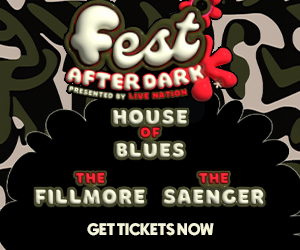This afternoon, I interviewed Ari Up from British first-generation punk band the Slits. OffBeat.com will run some of that interview later this year when the band’s new album, Trapped Animal, is released. Perhaps the most fascinating part of the interview was her regular use of the word “revolution” to describe the British punk moment circa 1975-1976.
It’s not that I disagree. Through the ’80s and ’90s, I said a number of times that if you missed 1976 punk, the culture must be very confusing thing. Punk sparked so many artistic and intellectual trains of thought that its remote effects could be seen in such American network television shows as Moonlighting and Late Night with David Letterman. (Now I suspect that the effects of punk have been a part of the culture long enough that they seem normalized and not disorienting at all.)
Nor do I question that it felt like she was fighting a revolution. She has talked about being stabbed, about being harrassed by the police, about being in constant conflict with Teds and National Front racists, and other punks of that era have told similar stories. Now that pop music is so thoroughly commodified, it’s hard to imagine Caetano Veloso and Gilberto Gil going to prison for making it wrong, and it’s hard to imagine a country up in arms over the thoughts and music of “200 people, tops,” she says.
The oddity of her use of “revolution” came in her way of talking as if time hasn’t passed. She was pleased when I said the new CD sounds like a natural continuation from Cut, then talked about time and the future in a way that I want to save for later (sorry), and throughout the interview, there was little sense of Ari Up circa 2009 reflecting on Ari Up, 1976. That made me wonder how much of her revolutionary consciousness is modern and how much of it she had then. Has she made herself seem wiser than she was?
She couldn’t make herself seem more ahead of her time than Cut already does. It remains one of the few punk albums that truly invented its own music – something apart from fast pop-rock. The structures and melodies are atypical and personal, and its reggae pulse is far more integral than it was for any punk band until Public Image, Ltd.
… and she spoke a language New Orleanians would understand when she bemoaned the state of the music punk reacted to: “Where’s the bass? Where’s the bass?”




